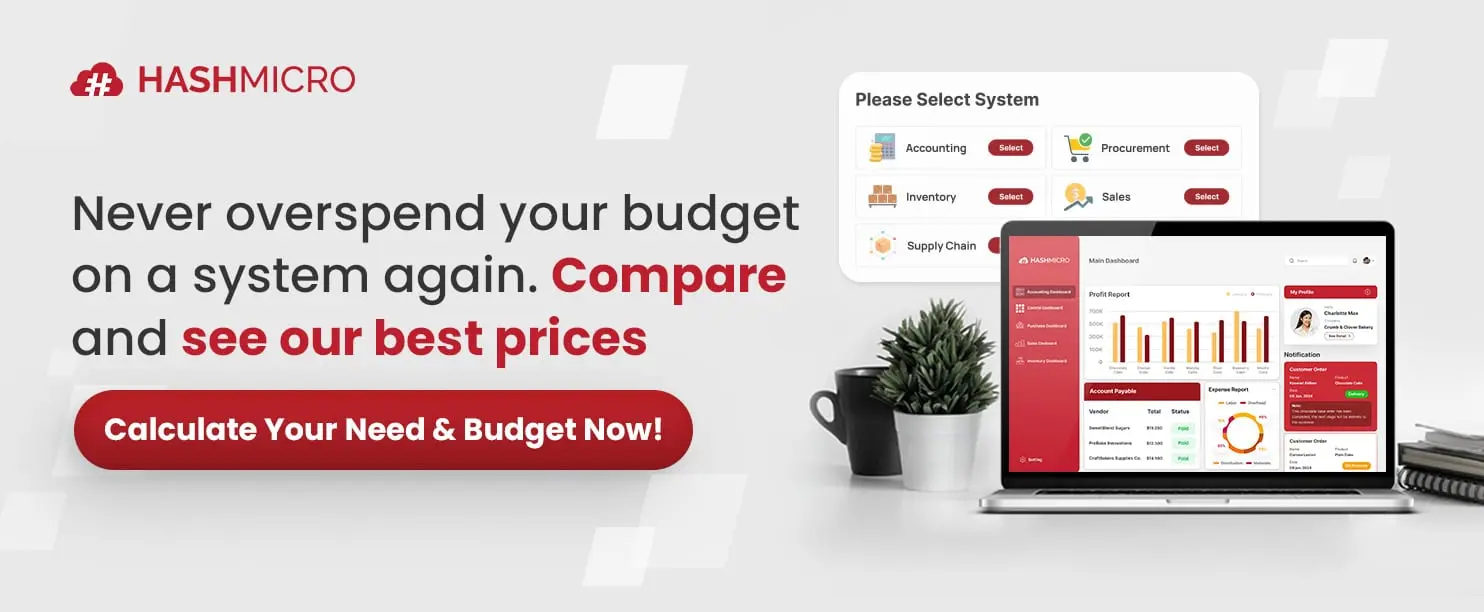Custom metal fabrication today goes beyond cutting and shaping metal; it’s about achieving precision and efficiency at every stage of the process. The right software turns complex workflows into streamlined processes that deliver consistent results.
Managers and leaders often struggle with late deliveries, rising material costs, and unpredictable production outcomes. Without the right system, these challenges quickly erode profitability and customer trust.
In Malaysia, the metal fabrication sector is experiencing rapid expansion, driven by demand from the construction, automotive, and aerospace industries. This growth underscores the pressing need for more sophisticated digital tools to manage operations efficiently.
This article will guide you through the top 10 manufacturing software designed to transform custom metal fabrication. Explore the list and see how the right choice can elevate your business performance.
Key Takeaways
|
What is Custom Metal Fabrication Software?
Custom metal fabrication software is a digital tool that helps fabricators manage every stage of the production process, from design to delivery. It enables companies to handle custom sheet metal fabrication projects with greater efficiency, ensuring accurate planning, tracking, and execution.
The core value of this production planning software lies in providing complete control over the process, making growth more structured and sustainable. Whether you’re working on made-to-order metal components or custom sheet metal fabrication, it ensures precision, productivity, and reliability for your business.
However, choosing the right solution is not always easy, as the market offers a mix of generic and specialized systems. For those focusing on precision metal fabrication for clients, the right choice ensures smoother integration, reliable scalability, and truly tailored sheet metal solutions.
Key Features to Look for in Metal Fabrication Software
Fabricators in the metal industry, especially those competing in the fabricated metals market, should ensure that their chosen software includes these essential features. Each element plays a critical role in improving efficiency, accuracy, and overall business growth.
- Project management: The ability to divide projects into lots or phases makes collaboration easier between teams and customers. This feature enhances communication, facilitates quick problem-solving, and promotes on-time project completion.
- Planning dates and capacities: Using planning tools that define start and end dates with estimated hours provides teams with a shared view of capacity. This helps identify bottlenecks early and ensures realistic deadlines for new projects, ensuring a more efficient workflow.
- BOM management: A bill of materials (BOM) provides a complete inventory of parts, raw materials, and components for each project. Advanced systems also manage drawings and routing, helping engineers and managers stay aligned on tasks and processes.
- Procurement and inventory control: Efficient procurement ensures fair pricing and timely delivery of materials, while effective inventory control maintains optimal stock levels. These features reduce manual work, minimise production delays, and keep fabrication on track.
- Shop floor reporting: Real-time shop floor visibility allows businesses to verify planning accuracy and spot bottlenecks in production. It also provides traceability for client projects, building trust through precise documentation and accountability.
- Progress overview: A timeline-based overview provides every team member with clarity on the project’s current status at any given moment. This transparency prevents guesswork and ensures all stakeholders are aligned with actual progress.
- Cost analysis: Knowing a project’s profitability at any stage supports better decision-making and long-term investment planning. By learning from cost analysis, companies can grow strategically while maximising returns.
Top 10 Manufacturing Software for Custom Metal Fabrication in 2026
Finding the right software for custom metal fabrication is no easy task. With numerous solutions available on the market, decision-makers must evaluate not only the functionality but also the integration, usability, and long-term scalability of each solution.
Below are the top software platforms leading the industry in 2026:
1. HashMicro
HashMicro is a provider of integrated business software, trusted by leading enterprises across Southeast Asia. Its cloud-based solutions are designed to simplify end-to-end business processes, particularly in manufacturing, distribution, and construction.
With over a decade of experience and more than 2,000 clients in the region, HashMicro has become the preferred choice for businesses seeking operational efficiency and excellence. The company delivers advanced ERP solutions tailored for industries with complex needs, including custom metal fabrication.
Equipped with automation technology, HashMicro’s manufacturing system helps fabrication companies manage production workflows, material usage, and project costing with precision. The intuitive interface ensures teams at all levels can efficiently operate the system without technical barriers.
The platform also integrates seamlessly with other HashMicro modules such as HR and CRM, creating a connected digital ecosystem. This integration provides fabrication businesses with complete visibility across operations, enabling more intelligent decision-making and stronger control over custom projects.
Key Features:
- Manufacturing production scheduling: Accurate scheduling ensures that machines and manpower are allocated efficiently based on historical demand. As a result, fabrication projects are completed on time with fewer bottlenecks.
- Secret Recipe / BoM: A detailed Bill of Materials provides clarity on every component and process required for each order. This guarantees consistent quality and minimizes costly errors during fabrication.
- Manufacturing requisition planning: Planning requisitions helps companies secure the right raw materials before production begins. This prevents delays caused by last-minute shortages or supplier issues.
- Made-to-order completion forecast: Real-time forecasting indicates when custom projects are expected to be completed. Customers gain reliable delivery dates, which builds stronger trust and encourages repeat orders.
- Manufacturing quality control: Built-in quality control tracks every step of the fabrication process. As a result, defects are detected early, reducing rework and wasted materials.
- Manufacturing cost actualization: Tracking actual costs against estimates gives companies complete visibility into profitability. This ensures fabrication projects remain financially sustainable.
- Multi-level BoM: This structure allows for precise management of complex assemblies. With this clarity, teams can avoid confusion and streamline production flows.
- Cutting management: Automated cutting management optimizes material usage during fabrication. This leads to reduced scrap rates and significant savings on raw materials.
- Production order & work order tracking: Tracking orders in real-time keeps managers updated on progress at every stage. This transparency improves coordination and prevents production backlogs.
- In-depth reporting on time spent, materials used, finished goods produced, and many more: Comprehensive reporting provides insights into efficiency and resource usage. With this data, businesses can make better decisions for future fabrication projects.
| Pros | Cons |
|
|
Understanding the right investment is just as important as choosing the right system. Click the banner below to calculate your software pricing and see how an additive manufacturing ERP can optimize costs for your business.
2. Eziil
Eziil, founded in Estonia, is a specialised software built exclusively for project-based metal fabricators. Designed to provide a real-time overview of the entire manufacturing process, it allows managers to connect departments with transparency and control.
The platform places a strong emphasis on accuracy, efficiency, and productivity across all stages, from planning to delivery. Its intuitive design helps simplify complex workflows into manageable steps, which makes it especially attractive for teams working on made-to-order metal components.
With consistent upgrades and implementation support, Eziil positions itself as a growing solution aligned with the needs of fabricators.
Key Features:
- Project management and cost analysis (plan vs. reality)
- Bill of Materials (BoM) and Bill of Operations
- Shop floor mobile reporting
- Factory capacity planning
| Pros | Cons |
| Tailored exclusively for fabrication projects | Requires Eziil’s own implementation service |
| Intuitive and user-friendly BoM functionality | Cloud-based, cannot operate offline |
| Transparency across departments and workflows | May lack global presence outside Europe/Asia |
| Strong project cost tracking and reporting | Steeper learning curve for first-time users |
3. Tekla PowerFab
Tekla PowerFab, part of the Trimble ecosystem, is a leading steel fabrication management solution with a strong global reputation. It provides end-to-end visibility for fabricators, integrating design, procurement, inventory, and project management into a single platform.
By consolidating multiple processes, Tekla PowerFab ensures that managers and teams have real-time information to make better decisions. Its seamless connection with Tekla Structures makes it especially valuable for businesses that handle both design and fabrication in-house.
With robust reporting and visualisation, the system helps fabricators optimise workflows and achieve efficiency in custom sheet metal fabrication.
Key Features:
- Real-time visibility of production data
- Inventory and purchasing control
- Centralised project management
- Workflow consolidation across departments
| Pros | Cons |
| Strong integration with Tekla design software | Steep learning curve for new users |
| Consolidates multiple processes into one system | Requires engineering drawings beyond Tekla inputs |
| Provides real-time visibility for decision-making | Implementation can take significant time |
| Backed by Trimble’s global expertise | Higher cost compared to smaller solutions |
4. Construsteel
Construsteel is a fabrication management software designed to streamline production for steel and metal fabrication industries. With a focus on precision and compatibility, it allows fabricators to integrate machinery and design tools seamlessly.
Its intuitive interface and robust simulation features help teams reduce manual work and improve output quality. By supporting a variety of file formats, Construsteel provides flexibility for engineers and project managers working with different systems.
For leaders aiming to deliver tailored sheet metal solutions, this software brings efficiency and clarity into daily operations.
Key Features:
- Integration with multiple machinery systems
- CAD file format compatibility
- Project management functions
- Simulation and prototyping features
| Pros | Cons |
| Seamless integration with diverse machinery | Requires a steep learning curve |
| Intuitive user interface for engineers | Limited global user base reduces shared expertise |
| Robust simulation for testing and prototyping | Customer support response can be slow |
| Supports multiple file formats | Implementation bottlenecks without experienced users |
5. SysPro
SysPro is a well-established ERP and manufacturing solution serving multiple industries, including metal fabrication. Its strength lies in its ability to integrate processes from design and procurement to production and reporting.
By offering real-time operational visibility, SysPro empowers decision-makers to act quickly and control outcomes effectively. Although it is a generalist ERP platform, it has dedicated modules that support fabrication requirements.
With strong reporting and workflow features, SysPro enables companies to improve efficiency and maintain control over custom metal fabrication processes.
Key Features:
- Real-time operational visibility
- Inventory tracking and procurement control
- Cost analysis and waste reduction tools
- Workflow and reporting features
| Pros | Cons |
| Comprehensive ERP capabilities | Not exclusively built for fabrication |
| Effective integration across business units | Complex for first-time users |
| Strong operational reporting | Setup and training require time |
| Reliable cost and inventory tracking | May include excess functions not needed by fabricators |
6. Strumis
Strumis is a powerful fabrication management solution widely used in the steel fabrication and construction sectors. It is designed to handle the entire project lifecycle, from initial bidding to final delivery, while ensuring accuracy in cost and time management.
The software excels at reducing material waste through nesting and automation, which improves profitability. With integration to BIM tools, it provides greater control over projects, especially for complex fabrication workflows.
Strumis is a trusted platform for businesses requiring precision metal fabrication for clients at scale.
Key Features:
- Integration with BIM software
- Nesting and material waste reduction
- Real-time production tracking
- Project cost and time management
| Pros | Cons |
| Full project lifecycle management | Complexity challenges first-time users |
| Reduces waste through advanced nesting | Setup requires significant time and resources |
| Strong BIM integration | Higher-end solution, not for every fabricator |
| Improves accuracy in cost control | Steep learning curve for team adoption |
7. Striven
Striven is a cloud-based ERP system that offers an all-in-one business management platform, including support for manufacturing and fabrication. It brings together operations such as project management, HR, finance, and inventory into a unified solution.
For fabricators, Striven offers integrated tools that enable them to track projects and resources in real-time. Its focus on usability and cloud accessibility ensures teams can collaborate seamlessly across locations.
This makes Striven particularly useful for managers seeking flexibility in custom sheet metal fabrication projects.
Key Features:
- Cloud-based with multi-device accessibility
- Project and resource management tools
- Inventory and procurement tracking
| Pros | Cons |
| Unified all-in-one ERP solution | Not tailored exclusively for fabrication |
| Cloud-based with remote access | Requires stable internet connectivity |
| Good usability and modern UI | May lack industry-specific depth |
| Strong integration across operations | Implementation support varies by region |
8. NetSuite
NetSuite, an Oracle product, is a globally recognised ERP platform with robust manufacturing capabilities. Known for its scalability, it offers advanced modules for production planning, financial management, and supply chain integration.
For fabricators, NetSuite provides tools to monitor manufacturing workflows, track inventory, and generate accurate analytics. Its cloud-native infrastructure makes it a future-proof solution for enterprises expanding regionally or globally.
With reliable support and frequent updates, NetSuite remains a strong choice for leaders in custom sheet metal fabrication.
Key Features:
- Cloud-based ERP with global scalability
- Manufacturing planning and scheduling
- Financial and supply chain integration
- Inventory and procurement control
| Pros | Cons |
| Scalable across industries and geographies | Complex setup and customisation |
| Advanced manufacturing and ERP modules | May include features irrelevant to some users |
| Cloud-native with regular updates | Requires ongoing support for optimisation |
| Reliable Oracle-backed support | Higher implementation time for enterprises |
9. Odoo
Odoo is an open-source ERP platform that offers flexible modules for different industries, including manufacturing and fabrication. It is widely appreciated for its modular approach, allowing businesses to customise their system according to their needs.
With strong community support and an intuitive interface, Odoo is easy to scale and adapt. Its integrated apps for project management, inventory, and production make it valuable for handling custom metal fabrication workflows efficiently.
Key Features:
- Modular ERP apps for flexibility
- Open-source community support
- Project and inventory management tools
- Manufacturing scheduling and tracking
| Pros | Cons |
| Highly customisable through modular apps | Customisation may require technical expertise |
| Strong open-source community support | Lacks out-of-the-box fabrication depth |
| Intuitive interface for usability | Implementation support varies |
| Wide integration across departments | Advanced functions may need third-party apps |
10. MRPeasy
MRPeasy is a lightweight, cloud-based MRP and manufacturing software designed for small to mid-sized production teams. It provides essential tools such as BoM management, production scheduling, inventory tracking, and procurement planning.
The platform is well-suited for fabricators managing made-to-order metal components and requiring transparency in day-to-day operations. With its clean interface and straightforward workflows, MRPeasy is easy to implement and adapt for production teams.
Key Features:
- Cloud-based MRP platform
- Bill of Materials and production scheduling
- Procurement and inventory control
- Real-time shop floor tracking
| Pros | Cons |
| Lightweight and easy to adopt | Limited scalability for large enterprises |
| Cloud-based with fast deployment | Fewer advanced fabrication features |
| User-friendly and intuitive interface | Relies heavily on internet access |
| Strong focus on essential manufacturing needs | Less flexibility for complex customisation |
How to Select the Right Software for Your Fabrication Business
Selecting the right CAD-CAM software for your fabrication business is crucial for achieving efficiency, precision, and long-term growth. Below are the key considerations that will help you select a solution that matches your unique operational needs.
- Machine compatibility: Always confirm that the software is compatible with your existing machines and post-processors. This prevents data loss and ensures a smooth workflow for custom metal fabrication projects.
- Integration capabilities: Look for platforms that connect seamlessly with ERP, MES, or quality management systems. Such integration is crucial for handling custom sheet metal fabrication projects and maintaining a unified production flow.
- Support for CAD file formats: Ensure the software supports all relevant CAD formats used in your industry. This ensures smooth transitions, particularly for sheet metal fabrication, custom design, and complex modelling tasks.
- Customizability: Select solutions that enable you to tailor features to your specific workflows and client requirements. Flexibility is crucial when working with custom-made metal components or tailored sheet metal solutions.
- Local support and training: Opt for providers offering strong local support and training resources. This helps your team fully leverage the software and enhances precision metal fabrication for clients.
- User interface design: A user-friendly interface shortens the learning curve and reduces operational errors. This ensures your workforce can focus on accuracy and delivering consistent quality.
- Maturity level of the software: Consider the software’s track record and market maturity before making an investment. A proven solution often reflects reliability, robustness, and scalability for future growth.
- Software specificity: Decide whether you need brand-agnostic CAD-CAM software or machine-specific solutions. Generic options provide greater flexibility, while vendor-specific tools can maximise machine potential.
Making an informed decision not only ensures that your software meets your shop’s requirements but also maximizes productivity, reduces costs, and strengthens competitiveness in the metal fabrication industry.
Real-World Applications of Fabrication Software in Manufacturing
The right CAD-CAM software goes beyond technology and creates real value in daily manufacturing operations. Below are key applications where fabrication software actively drives efficiency, accuracy, and growth in custom metal fabrication:
1. Machine brands and post processors
Compatibility between CAD-CAM software and your CNC machines is essential for smooth operations. When the software generates accurate post-processor code, it ensures that machines execute sheet metal fabrication custom design with precision.
This results in fewer errors, faster setups, and consistent output across different machine brands. In practice, it ensures higher efficiency and reliable results for precision metal fabrication, benefiting clients.
2. Budget focus vs. long-term investment
Many businesses are tempted to opt for cheaper software options to reduce their upfront costs. However, these solutions may lack scalability, leading to higher expenses when handling made-to-order metal components or advanced integrations.
Investing in a quality system ensures durability, flexibility, and reduced long-term costs. In the long run, this strategic choice supports sustainable growth for custom sheet metal fabrication businesses.
3. Local support and training
Even the most advanced software is only as effective as the people using it. Vendors that provide strong local support and training help teams fully utilise software features and solve problems quickly.
This reduces downtime and ensures operations run smoothly, even in high-pressure environments. For fabricators aiming to deliver tailored sheet metal solutions, strong support translates into consistent performance and competitive advantage.
4. Team technical know-how
Every fabrication team has varying levels of technical expertise. Matching software complexity with your team’s skill set ensures smooth adoption and reduces frustration during daily use.
When employees feel confident, they can better manage workflows for custom metal fabrication projects and improve productivity. This balance empowers your staff to maximise output while maintaining quality for precision metal fabrication for clients.
5. Flexibility for future changes
The manufacturing industry is constantly evolving, and your software must evolve with it. Systems that allow flexibility in core data, such as machine specifications, materials, and routing, make future transitions easier.
This means you can upgrade to new technology without losing control of existing processes. Such flexibility is key for companies that rely on sheet metal fabrication and custom design and need to adapt quickly to client demands.
6. Integration with ERP and MES
Seamless integration with ERP and MES is vital for end-to-end efficiency. By connecting CAD-CAM with other business systems, fabricators reduce manual data entry, eliminate duplication, and improve accuracy.
This integration supports smarter decision-making and ensures visibility across planning, production, and delivery. For businesses handling made-to-order metal components, it creates a streamlined workflow from design to final product.
7. Accuracy, reliability, and updates
Reliable software ensures that every design is executed with accuracy, maintaining high-quality standards. Providers that offer regular updates keep your system aligned with industry changes and new technologies.
This longevity protects your investment and enables your business to remain competitive in fast-paced markets. For those delivering tailored sheet metal solutions, it guarantees continuous improvement and future readiness.
Conclusion
Selecting the right software for custom metal fabrication is a strategic decision that impacts efficiency, scalability, and long-term competitiveness. From managing made-to-order metal components to ensuring precision metal fabrication for clients, the right system empowers businesses to deliver consistent quality on a large scale.
HashMicro ERP Manufacturing Software stands out as a robust platform that unifies production, inventory, and financial management within a single system. With advanced features like BoM control, quality monitoring, and AI-powered analytics, it ensures your custom sheet metal fabrication projects run seamlessly from planning to delivery.
Now is the time to modernise your operations and gain a sharper competitive edge. Book your free demo with HashMicro today and discover how our ERP solution can help you optimise workflows, reduce waste, and unlock growth opportunities.
Frequently Asked Questions
-
How does manufacturing software reduce material waste?
Through nesting optimization, automated cutting plans, and real-time material tracking, the system minimizes scrap and improves yield per sheet or raw material unit. Accurate material planning directly impacts profitability in metal fabrication.
-
Can manufacturing software track machine performance and downtime?
Modern systems provide real-time shop floor monitoring, tracking machine utilization, downtime causes, and production output. This visibility helps managers identify bottlenecks and optimize capacity planning.
-
How long does it take to implement fabrication software?
Implementation timelines vary depending on business size and complexity. Small to mid-sized fabrication shops may require several weeks, while large operations with multiple integrations and custom workflows may take several months.
-
Is cloud-based software suitable for fabrication environments?
Yes, provided stable internet connectivity is available. Cloud systems offer real-time access, automatic updates, and remote collaboration. However, facilities in areas with bad connection may require hybrid or offline options.




























